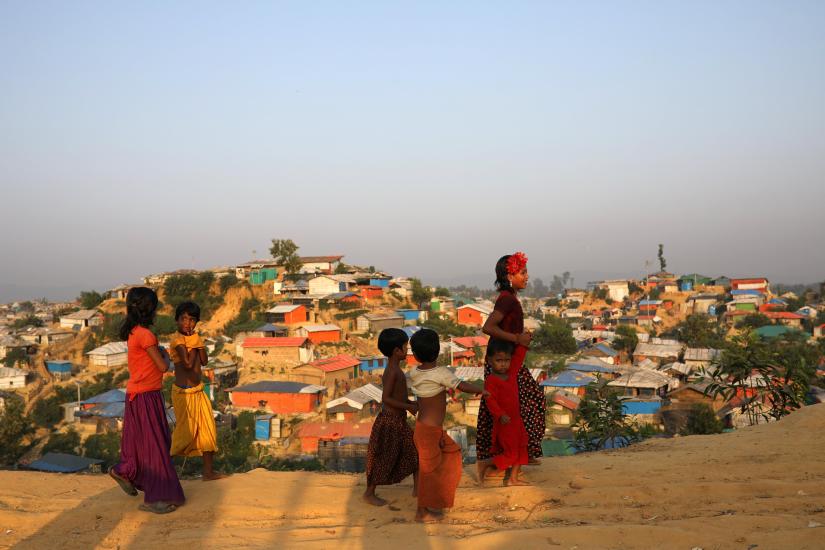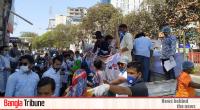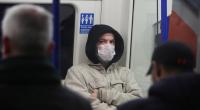 In the world’s largest refugee settlement in Bangladesh, filmmaker Mohammed Arafat has been making public safety videos to warn about the dangers of coronavirus.
In the world’s largest refugee settlement in Bangladesh, filmmaker Mohammed Arafat has been making public safety videos to warn about the dangers of coronavirus.
The 25-year-old is worried that the disease will devastate the vast, crowded camps that house more than one million Rohingya, members of a mostly Muslim minority who fled a brutal military crackdown in Myanmar.
“We are living in tiny, crowded shelters, we are sharing toilets,” he told Reuters. “It is very difficult to protect ourselves, it’s too crowded, people can’t breathe well.”
Bangladesh, which has reported 48 cases of the virus and five deaths, imposed a lockdown on Tuesday, the same day it confirmed the first case in Cox’s Bazar, the coastal district where the Rohingya camps are located. A family of four Rohingya have been quarantined after returning from India.
As the coronavirus forces the world’s big cities and wealthiest countries into lockdown, a potential humanitarian catastrophe threatens tens of millions of people crowded into refugee camps and makeshift settlements for displaced people from Bangladesh to Syria and across Africa, where healthcare and clean water is often scarce, sanitation is poor, illnesses are rife and social distancing is almost impossible.
“God forbid, if the virus gets into the camps, it would have a catastrophic effect,” Mahbub Alam Talukder, Bangladesh’s refugee relief and repatriation commissioner, told Reuters.
The United Nations says almost 70 million people uprooted by war and persecution around the world are in acute danger.
“We must come to the aid of the ultra-vulnerable – millions upon millions of people who are least able to protect themselves,” said UN Secretary-General António Guterres this week.
UNHCR, the UN agency charged with protecting refugees, is looking to raise $255 million from member states to tackle the problem, part of a wider UN response plan seeking $2.01 billion.
To be sure, camps in Bangladesh and elsewhere have experienced outbreaks of measles, diphtheria and other respiratory infections, and the SARS (Severe Acute Respiratory Syndrome) and Ebola epidemics did not lead to large-scale infections or mass deaths of refugees.
However, the latest coronavirus has exceeded all previous outbreaks, infecting almost 600,000 people globally and killing more than 27,000, according to a Reuters tally.
‘Just one case’
The mazy hills around Cox’s Bazar in Bangladesh are more densely populated than the most crowded cities on earth, with 60,000 to 90,000 people jammed into each square kilometer where as many as a dozen people share single small shelters and many more use the same water well and toilet.
Arafat, who fled violence in Myanmar eight years ago, urges people in his short videos to wash their hands and keep their distance from one another. But he cannot share the videos as mobile networks in the area have been curtailed by the government since last year on unspecified security grounds. As a result, both he and aid workers are struggling to educate the population about the spread of the virus.
In recent days volunteers have been blasting public health messages from radios and loudspeakers, but Arafat said rumours and misinformation persist, with some pinning their hopes on prayer, eating leaves and exposure to heat to ward off the virus.
“It needs just one case and it would be really critical,” said Haiko Magtrayo, a Cox’s Bazar-based aid worker from the International Committee of the Red Cross. Further spread would be “uncontrollable,” he added.
The closest hospital with an intensive care unit is in the town of Cox’s Bazar. The UN refugee agency says it is trying to expand the capacity to 10 beds and to improve healthcare services inside the camps, but as rumours spread, some are panicking.
“What is happening!” Mohammed Junaid, 21, said in a message to Reuters. “If something happens, where will we go for treatment?"


